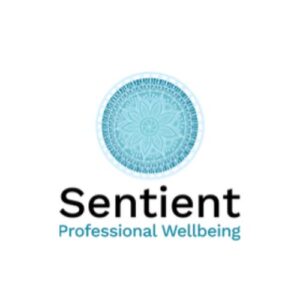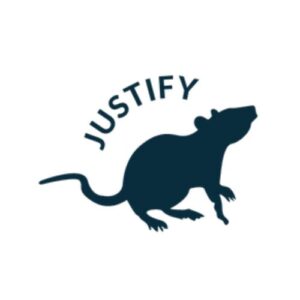Do you work in a laboratory or scientific institution in Australia? Have you personally witnessed distressing or harmful practices to animals in a research setting that have been detrimental to your own mental health?
Even though Animal-Free Science Advocacy’s primary area of work is in advocating for animals in Australian laboratories, we take a holistic and caring approach to helping people as well. Specifically, current or former animal technicians or animal researchers in Australian institutions.
Working in industries where animals are harmed can take its toll on your mental health. This not only occurs in the animal research industry but also in the meat and dairy industries, veterinary, animal rescue and emergency services professions.
Test Subjects explores the pressure on aspiring scientists to experiment on animals in order to earn their doctorates and the personal toll this can take.
There are resources for those working in the animal experimentation industry. The Norecopa website introduces ‘Culture of Care’ and links to an international culture of care network that facilitates care of staff, animals and greater transparency.
Listen to an AFSA podcast episode exploring the psychological impact of working with animals in research with Justify co-founder and former primate lab animal technician Maddie Krasno.
We have included this page to guide former and current lab workers towards getting the help that they need. Many people working in the animal research industry sweep how they feel under the carpet and may be reluctant to countenance the toll it is taking on themselves and their loved ones.
*Animal-Free Science Advocacy does not formally recommend specific mental health support services. We recommend that you use this as a starting point for your own research into mental health services appropriate for your own personal circumstances and location.
Please note, if you are located in Australia and require emergency mental health assistance please call emergency services on 000, or call Lifeline on 13 11 14
Recent literature suggests that 87% of North American animal care professionals (veterinarians and veterinary technicians in clinical practice or shelters, and animal control officers) have experienced Compassion Fatigue at one point or another.15
An Australian study suggested that 48% of research animal technicians are at “moderate to high risk for developing feelings of Compassion Fatigue”.36 Contemporary evidence suggests that Compassion Fatigue in nurses and animal care professionals may lead to a reduced quality of life and is associated with loss of empathy, isolation, dissociation, substance abuse, physical ailments, trouble sleeping, and feelings of anger and sadness.

Get Support
Sentient Professional Wellbeing

Sentient Professional Wellbeing is a counselling and coaching practice deeply committed to supporting the animal care and advocacy sector. They foster an atmosphere of safety and non-judgment for clients.
Their therapeutic support extends to veterinary professionals, animal shelter workers, conservationists, activists, volunteers, and others who may face the daunting pressures of stress, anxiety, grief, burnout, and compassion fatigue amidst their demanding roles.
The team have recently undertaken further research into these areas, particularly around the mental health impacts of animal related work. They also have a comprehensive counselling treatment manual for animal care workers in development.
They work with issues pertaining to enhancing work/life balance such as managing the work/home interface, and improving time management, communication skills, and motivation.
As part of their work within diversity, they focus on intersectionality, i.e. how our unique identities of ethnicity, gender, sexuality and class can shape and impact work and life experiences. This also includes issues of inter-speciesism, and caring for human beings as well as our sentient animal companions with whom we share so much of ourselves lives.
Dr Tani Khara

Dr Tani Khara is the research director and a mental health coach at Sentient Professional Wellbeing. She also supports individuals looking to overcome personal and professional challenges. If you are struggling with stress, anxiety, depression, compassion fatigue, grief and/or loss, she is there for you.
As a practitioner she uses therapeutic frameworks such as Acceptance and Commitment Therapy (ACT), Solution-Focused Brief Therapy (SFBT), Cognitive Behavioural Therapy (CBT), and Mindfulness-based approaches. She also draws on over ten years of experience working in leadership roles and providing coaching and mentoring to students and colleagues.
Tani is dedicated to working with organisations to provide workshops and training for those engaged in the noble causes of animal care, social justice, and environmentalism. With her background as an academic researcher at University of Technology in Sydney (UTS), she has published on psychosocial issues surrounding compassion and interspecies interactions.
Tani’s most recent research was in collaboration with an animal rights NGO, which aims at ending the dog and cat meat trade in certain Asian regions. This included researching the psychological impact on individuals involved in this trade, and highlighting how witnessing or participating in animal-directed violence greatly affects human beings too. The results from this study contributed to a collective movement that led to some significant changes at the UN level. Read more: https://profiles.uts.edu.au/Tani.Khara/publications
She has a special affinity for serving multicultural clients and speaks fluent English and Hindi, along with conversational Punjabi.
Justify

JUSTIFY is an online community that supports current and former lab workers, and advocates for a world where science exists without causing harm to animals or humans.
Justify create change by raising awareness, building community, empowering storytelling, and inspiring action. Their vision is for a world where science exists without suffering.
Dr Vanessa Rohlf

Dr Vanessa Rohlf is a consultant, therapist, and educator specialising in compassion fatigue, stress management, pet loss, and animal bereavement. As a former veterinary nurse and animal welfare researcher, she saw a need to support those who devote their lives to caring for animals.
To fulfill this need, Vanessa provides counselling and evidence-based workshops, seminars, and consultations. These services are tailored to meet the requirements of the organisation or individual she works with.
Dr Leona Black

Dr Leona Black has been an Educational Psychologist since 2007, having qualified at the University of Bristol, UK. Leona wanted to find a way to combine her love of animals and concerns around welfare with her understanding of humans.
Her belief is that the welfare of humans is important when considering the welfare of animals. So in 2021, Leona embarked on a Masters at The University of Edinburgh in International Animal Welfare, Ethics and Law. She learnt from speaking to colleagues in and outside of the course just how prevalent compassion fatigue can be in the area of animal welfare. As a result, she now uses her expertise in psychology to support those directly supporting animals.
She has a coaching psychology business called The BlackLight Coach which aims to coach people through aspects of their work including compassion fatigue, stress and burnout.
Tell your story confidentially
Sometimes healing can come in the form of disclosure of your personal story. This can be done confidentially if you wish. In this form you may choose to omit your name or use a pseudonym.
Animal-Free Science Advocacy respects your personal privacy and if you want to come forward to tell your story you are welcome to use the form below. Animal-Free Science Advocacy will keep all personal details of your name, location and email address strictly confidential – this will not be shared to any third party other than Animal-Free Science Advocacy‘s staff.
Please also note that Animal-Free Science Advocacy complies with all relevant state and territory legislation in this regard and encourage all respondents to be mindful of legislation in their state or territory which may restrict the ability to disclose information.
"*" indicates required fields
